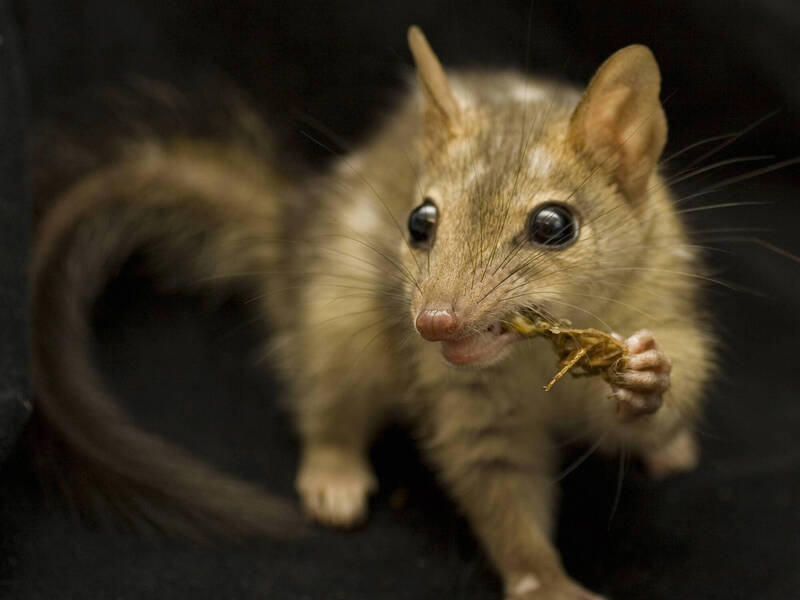A new study in Australia has found that male northern quolls often die after just one breeding season because they focus on mating and reproduce, sacrificing sleep time to travel long distances to find a mate.
(AFP)
[Instant News/Comprehensive Report] The northern quoll (northern quoll), a unique species in Australia, is on the verge of extinction, and the males are even shorter-lived. The latest research has found that the male northern quoll may be focusing on mating and reproduction, sacrificing sleep time in order to find a mate. Exhaustion causes them to die, often after just one breeding season.
Australian research published in the journal Royal Society Open Science on Wednesday (2/1) explains a possible reason for the short lifespan of male northern quolls as researchers track the meat, the BBC and the Guardian report. After tracking the whereabouts of sexual marsupials, it was found that the lack of rest during the breeding season can lead to a large number of male deaths every year; in comparison, female northern quolls live up to 4 years.
Please read on...
The researchers used trackers to observe the whereabouts of male northern quolls on (Groote Eylandt) Island in the Northern Territory of Australia for 42 days, and found that male quolls only rested about 8% of the time, while female quolls rested for as long as male quolls. 3 times that of ferret, 24%.
The male quolls spent a lot of time on the move, with two tracking targets walking 10.4 kilometers and 9.4 kilometers in one night, equivalent to a human walking 35 to 40 kilometers.
Christofer Clemente, a senior lecturer at the UniSC University of the Sunshine Coast who participated in the study, said the male quolls put all their energy into breeding, causing them to give up sleeping and spend more time looking for females mating.
Focusing on mating also appears to make male quolls more attractive to parasites, possibly because they groom less often to make the most of their precious breeding season.
The researchers also noted that male quolls were also less vigilant than female quolls when it came to finding food or avoiding predators.
The study's lead author, Joshua Gaschk, said prolonged sleep deprivation and associated symptoms, which make it difficult to recover, could explain the mass die-off of male quolls after the breeding season.
"They are easy prey, unable to avoid vehicle collisions, or exhausted to death."
